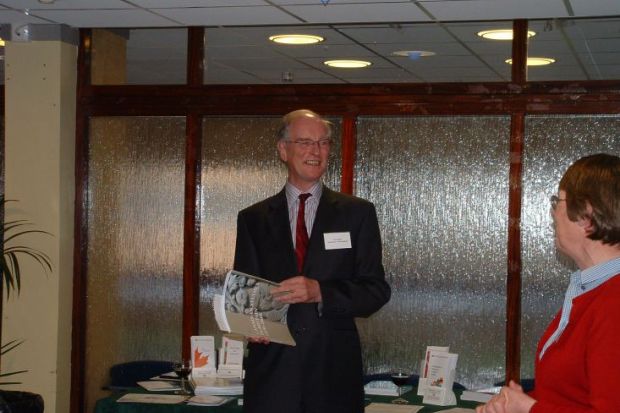Tim Rooth was born on 9 October 1939 and educated at Hurstpierpoint College in Sussex. He went on to study economics at the University of Hull and, after training as a teacher in Birmingham, taught at Lewes College.
In 1967, he joined what was then the Portsmouth College of Technology as a lecturer in economic history. He was to remain there until he retired as emeritus professor in 2005 (though the institution had become the University of Portsmouth in 1992), having acquired a PhD in international economic history at Hull (1984) along the way.
Even before entering university, Professor Rooth had spent time in Canada, working in a Toronto bank – where he was once asked to guard a safe with an ancient revolver, which he managed to fire by mistake – and then as a fitter in a gold mine in the Northwest Territories. Canada, finance and indeed firearms would all find a place in his subsequent research and writing career.
At the heart of Professor Rooth’s research was British international economic diplomacy, and particularly Anglo-Canadian trade negotiations. Along with many journal articles, this culminated in a definitive study of the aftermath of the 1931 sterling crisis, British Protectionism and the International Economy: Overseas Commercial Policy in the 1930s (1993).
Through forensic analysis of archive material, he was able to demonstrate the sheer complexity and effort required to negotiate trade agreements, which seldom go according to plan – an analysis that remains highly topical in the light of the global deals Britain is now seeking as a result of Brexit.
As well as serving as president of the British Association of Canadian Studies, for which he edited a volume for its 40th anniversary, titled Canadian Studies in Britain 1970-2010: An Assessment in the Context of a Changing World, Professor Rooth was a founding member and president of the Chichester Society. He once staged a sit-in in a tree to protest against planned developments there and wrote a book called Saving Our City: The Chichester Society in the 1970s (2015).
Even more unusual was the account he edited with Alexander Hallawell of a lawyer who fled to Portugal after getting into a fight after a concert, published as Bristol 1809 – A Fatal Duel, the Fugitive’s Story in 2013.
A committed and inspiring teacher, Professor Rooth continued to come into the university and to remain active as a scholar well after retirement. He died on 2 January and is survived by his wife Iris, a daughter and a grandson.
Register to continue
Why register?
- Registration is free and only takes a moment
- Once registered, you can read 3 articles a month
- Sign up for our newsletter
Subscribe
Or subscribe for unlimited access to:
- Unlimited access to news, views, insights & reviews
- Digital editions
- Digital access to THE’s university and college rankings analysis
Already registered or a current subscriber? Login








